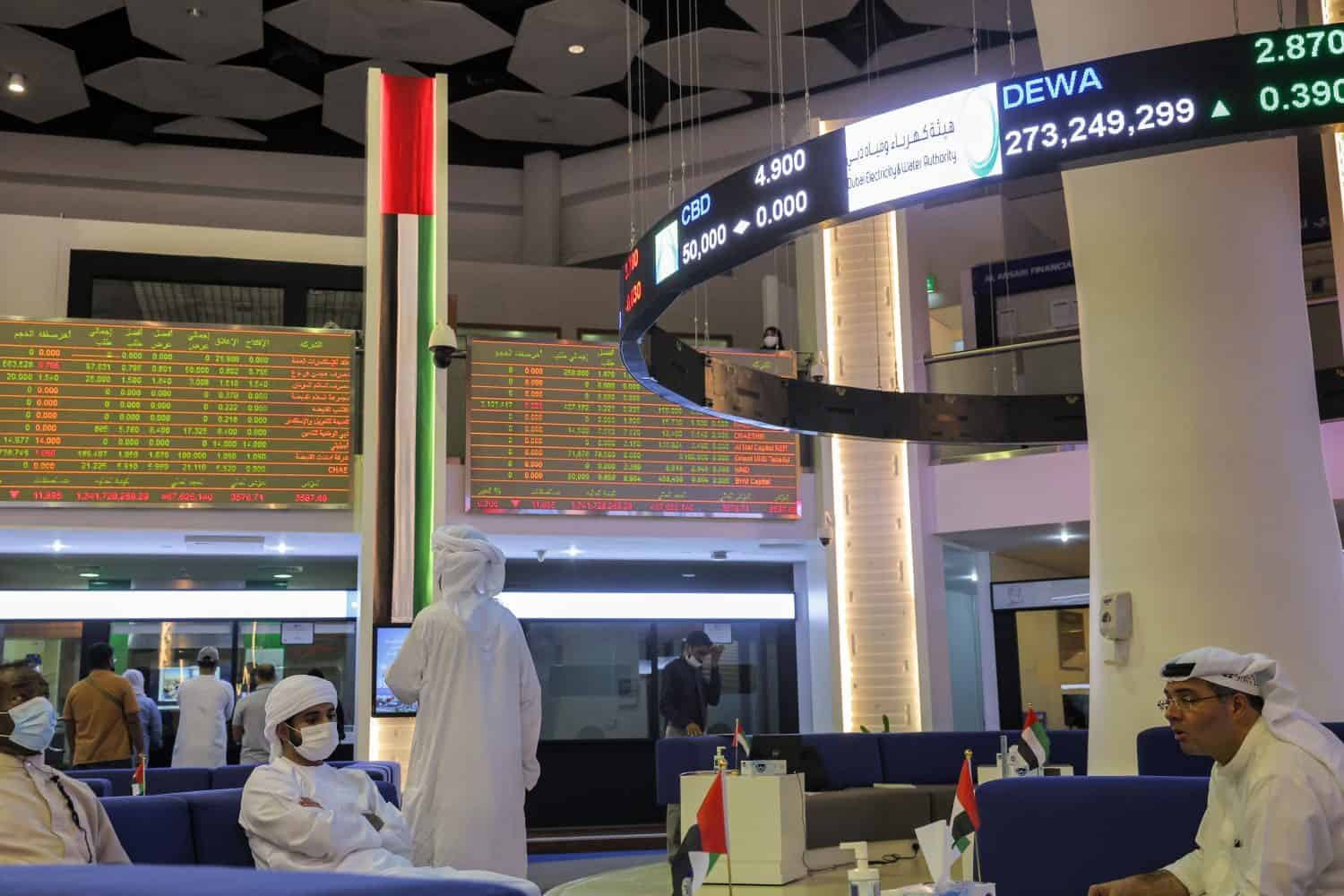DUBAI, UAE — As oil prices fell after top crude importer China widened its COVID-19 curbs, Gulf markets declined during the last two trading days.
The Dubai Financial Market fell 49 points for this week as a whole, or 1.4 percent, compared to last week, while the Abu Dhabi Stock Exchange rose by 175 points for this week as a whole, or 1.7 percent, compared to its closing last Friday, October 21, 2022.
The general index of the Saudi stock market TASI, meanwhile, decreased by 0.7 percent, losing 89.27 points, to close at 11709.5 points.
Saudi stocks rose on Sunday (October 23, 2022) to close the general index higher and gain 42 points in the Saudi stock market trading Saturday, reaching 12006 points. The shares of 135 companies recorded an increase in value, while the shares of 65 closed down.
The index also rose on Monday (October 24, 2022) by 0.5 percent, and 11 sectors in the Saudi Stock Exchange, led by public utilities, rose by 3.62 percent.
On the other hand, the general index of the Saudi stock market, TASI, fell on Tuesday (October 25, 2022) by 0.8 percent. And 20 sectors in the Saudi Stock Exchange, led by public utilities, fell by 2.7 percent.
The main market index lost 11,800 points by Wednesday’s session (October 26, 2022), down by 1.5 percent, recording its most considerable daily loss in about three weeks.
The pressure came primarily from the shares of the primary materials sector in conjunction with the sector companies’ announcement of their financial results before the start of the session.
TASI, at the end of Thursday’s trading session (October 27, 2022), decreased by 0.76 percent, losing 89.27 points, to close at the level of 11,709.5 points. And 18 sectors in the Saudi Stock Exchange fell, led by the management and development of the real estate, by 3.4 percent.
Deviation in the Abu Dhabi Index
At the close of trade on Monday (October 24, 2022), the Abu Dhabi Securities Exchange index declined by 0.4 percent. Six Abu Dhabi Stock Exchange sectors had decreased, with the consumer estimate falling by 2.5 percent.
On Tuesday (October 25, 2022), the index declined by 0.1 percent, while the real estate and basic materials sectors decreased by 0.32 percent and 0.1 percent.
While global holding shares turned back to green and profit-taking operations ended on Wednesday (October 26, 2022), the Abu Dhabi index climbed by roughly 0.3 percent.
On Thursday (October 27, 2022), the Abu Dhabi index surged 2.1 percent, with eight sectors leading the way with gains of 3.5 percent or more.
During Friday (October 28, 2022) trading, the index ended the day down 0.1 percent. Of the 59 firms whose stock changed hands, 17 saw gains, 35 saw losses, and seven saw no change.
Dubai’s index decreases
At the end of trading on Monday (October 24, 2022), the Dubai Financial Market’s overall index had dropped by 0.6 percent, and seven sectors of the Dubai Stock Exchange had also fallen, with the services sector falling by 3.3 percent and the banking sector falling by 0.9 percent.
On Tuesday (October 25, 2022), the overall index dropped by 0.01 percent and five sectors on the Dubai Stock Exchange, led by the services sector, plummeted by a combined 1.2 percent.
On Wednesday (October 26, 2022), the index dropped 0.9 percent marking the third straight session of losses.
The slide was driven by Emaar Properties which fell 1.6 percent and Dubai Islamic share which dropped 1.5 percent to its lowest finish in over a month and a half.
However, on Thursday (October 27, 2022), the index increased by 0.6 percent, while seven sectors in the Dubai Stock Exchange, led by commodities, increased by 3.4 percent.
On Friday (October 28, 2022), the index fell 0.5 percent with total trades of US$ 69 million. Out of the 32 firms whose stock was traded today, 21 saw their share price fall, eight saw theirs rise, and three saw theirs remain unchanged.








